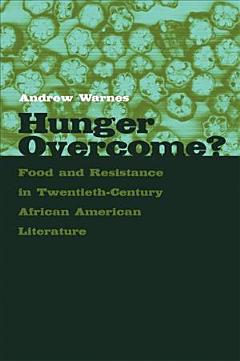What makes this trope so powerful, Warnes argues, is that it implicitly politicizes hunger, revealing it to be an avoidable, imposed condition. In Hurston's scenes of feasting and plenty in the utopian, all-black community of Eatonville; in Wright's refusal of stale bread and spoiled molasses from his white employer; and in Morrison's depiction of her characters' strategies of pilfering and foraging, we witness the implications of a kind of hunger that could be abolished were it not useful as a means of enforcing acquiescence, dependency, and docility. Throughout Hunger Overcome? Warnes relates his readings to the wider culture by drawing on such diverse sources as the slave autobiography Narrative of the Life of Frederick Douglass, Ntozake Shange's cookbook If I Can Cook / You Know God Can, Horace Cayton and St. Clair Drake's sociological study Black Metropolis, and Stanley Kramer's film Guess Who's Coming to Dinner?
Food and Resistance in Twentieth-century African American Literature
By:
Andrew Warnes

